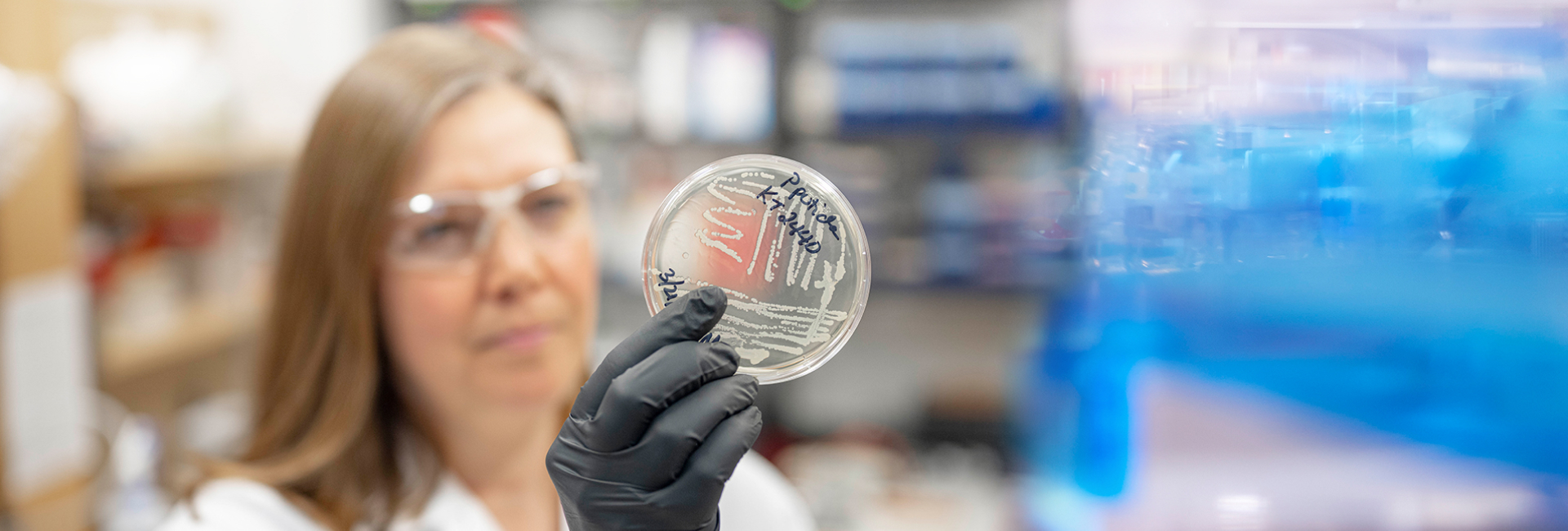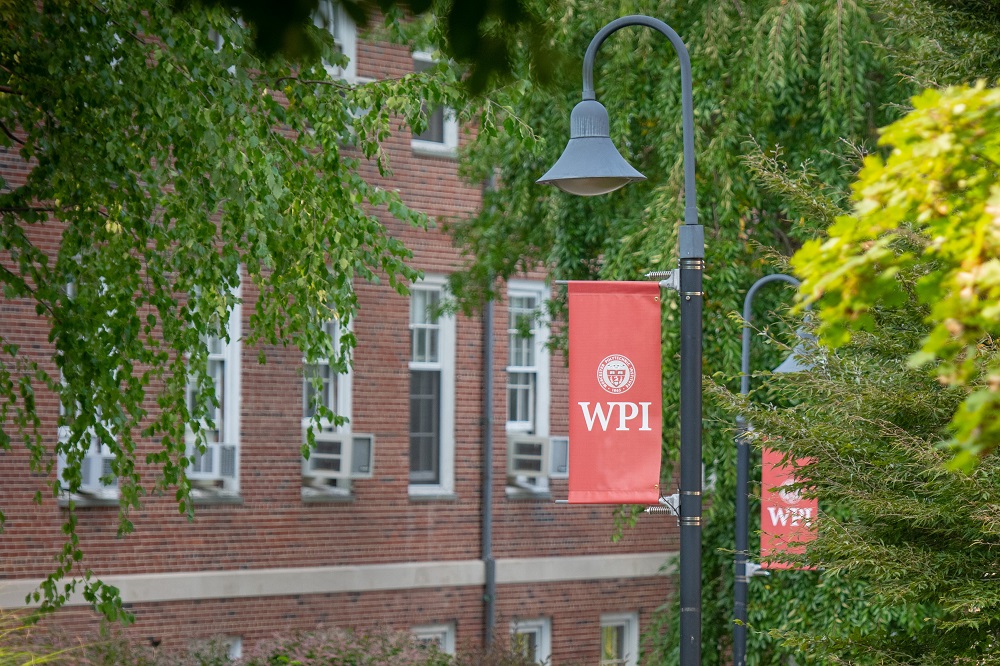Tiny parasites that live in soil and tinier surface-dwelling fungal pathogens typically found in health care facilities represent different threats to human health, but they appear to share something intriguing—a vulnerability to the same compounds.
That’s why Reeta Rao, professor in the Department of Biology and Biotechnology, is working with researchers from the University of Massachusetts Medical School (UMMS) and the University of Massachusetts Dartmouth, on a one-year project to screen analogs of a plant-derived compound as a potential prophylactic or therapeutic against Candida auris (C. auris) and soil-transmitted parasites such as hookworms, whipworms, and ascarids.
Funded with a $50,000 seed grant from UMMS, the researchers are focusing on Luotonin A, a natural alkaloid extracted from a perennial herb that has been used in traditional Chinese medicine.
“Drugs used to treat parasitic infections can also work against other pathogens,” says Rao, who is co-principal investigator of the project. “The goal of this project is to identify multiple chemical analogs of Luotonin A that work against both fungi and parasites so that we can generate data, publish results, and seek grant funding for further studies. Ultimately, we want to come up with an antifungal, antiparasitic agent.”
Rao’s collaborators are principal investigator Mostafa Elfawal of UMass Medical School and co-PI Sivappa Rasapalli, associate professor of chemistry at UMass Dartmouth. Rasapalli will produce the chemical analogs, Elfawal will screen the analogs against parasites, and Rao will screen the analogs against C. auris.





